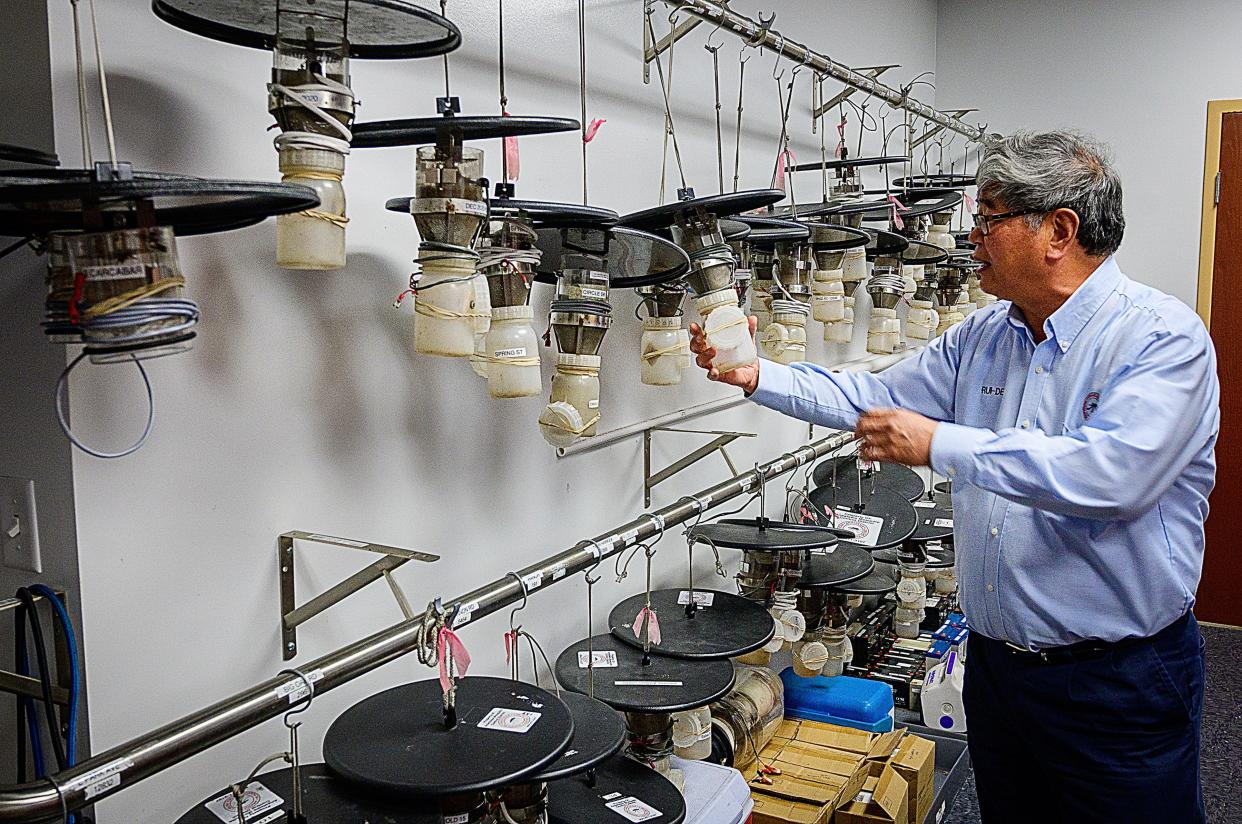West Nile virus detected in St. Johns County chicken, mosquito illness found in horse

The Anastasia Mosquito Control District recently increased its efforts to kill mosquitos after mosquito-borne illnesses were found in a horse and chicken, and the district has received reports of travel-related human cases this year, according to district Director Rui-De Xue.
Public health: Blue-green algae toxins present around Racy Point in St. Johns River
Local government: St. Augustine targets vaping, smoking in public parks with possible $100 fines
The district, which levies property taxes, provides mosquito control services to St. Johns County. Xue said the mosquito population has increased this summer, and he encouraged people to take precautions.
The district reported several recent incidents in an email to The Record.
A sentinel chicken in Elkton tested positive for West Nile Virus on Monday, according to Xue. The district keeps sentinel chickens at 10 locations around the county and tests their blood as a way to monitor the presence of mosquito-borne diseases and protect the public.
Also, a horse near County Road 208 tested positive for Eastern equine encephalitis this month, according to Xue.
The district also received reports about couple of cases of people already infected with mosquito-borne illnesses who came into the county. One person traveled into the county with malaria, which was reported in May and confirmed in June. Another person traveled into the county with dengue fever, which was reported in June and confirmed this month.
Officials with the Florida Department of Health in St. Johns County shared the information about the human cases and the horse case with the district, according to Xue.
"When we received the suspect case, we quickly took/take action to increase the surveillance and make necessary treatment to prevent the possible spread in the areas," according to Xue.
District has increased spraying to help combat West Nile virus
In response, the district has increased its aerial spraying of larvicide and adulticide in hot spots around the county, according to Xue.
The county hasn't had any locally acquired mosquito-borne disease cases among humans since 2004, according to Xue.
Mosquito-borne diseases, which are "spread by the bite of an infected mosquito," "include Zika virus, West Nile virus, Chikungunya virus, dengue and malaria," according to the Centers for Disease Control and Prevention.
There aren't any "successful vaccines" for mosquito-borne diseases among people except for yellow fever, according to Xue. People should contact a veterinarian for information about protecting animals. Vaccines are available for horses for Eastern equine encephalitis and West Nile virus.
The district encourages residents to take normal precautions. Xue recommended that people:
Empty containers.
Reduce outdoor activity after sunset, when mosquito activity reaches its peak.
Wear long-sleeved shirts, and long pants when going outdoors in the late afternoon or at night, or use DEET repellant, if necessary.
For questions or concerns about mosquito problems or to request mosquito control services, which the district provides for free, visit amcdsjc.org or call 904-471-3107.
This article originally appeared on St. Augustine Record: West Nile virus, equine encephalitis found in St. Johns County animals

